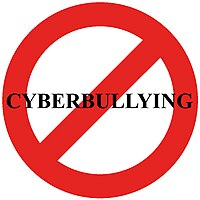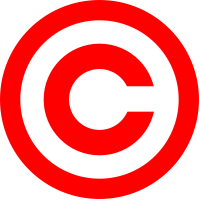Digital communication technologies/Key concepts/Issues
| Digital communication technologies | |
|---|---|
| Key concepts | Introduction | Messaging | Social media | Web tools | Issues | Managing threats | Key points | Assessment |
Contents
Inappropriate use of DCTs
With all forms of communications there is the risk that they will be used in an inappropriate manner. This is the same with DCTs: both businesses and individuals need to be aware of their responsibilities and the protocols which should be followed.
Business
When talking about DCTs in a business context we must understand when it is appropriate to use them. DCTs should not be used during a meeting unless it is required to fulfill the purpose of the meeting: texting or sending emails whilst in a meeting is both disrespectful to the other participants and also disruptive.
Using DCTs to transmit sensitive information also needs consideration. Bearing in mind how easy it is for information to be sent to the wrong person, we must make the best choice for the situation and content of the communication.
Personal
Due to the availability of DCTs in every day life it has become more common place for people to use DCTs a lot of the time. However this does not make is ok. We still must respect others when using DCTs. Using cellphones or net books in a movie theater would interrupt the viewing pleasure of other movie goers. Also if you are in a important conversation with someone it is not good practice to pull your phone out and start sending a SMS or updating your status on Facebook.
It is important to remember that when you are take a phone call, send a text message or send an email whilst in a conversation with someone else it makes them feel less important.
Time & cost
Time is a important factor of using DCTs. With the example of SMS and MMS the time in which you send a message can have an affect on the person you are sending it to. This can also be the case in business sense, people may only want to deal with business related work during business hours. Even though DCTs allow us to communicate with and access people at any time,it is important take time into consideration.
Cost is another aspect of DCTs that must be considered. The cost of using DCTs can very in different countries based on the plans that the consumer has signed up for with the device. When traveling overseas the costs of using DCTs increases as consumers must use the global roaming feature. This charges the consumer to receive calls and data. To avoid high costs it is best for the consumer to select a plan (Number of SMS, Call minutes and Data) that best suits their needs.
Things to remember
- Be Polite
- If you need to take a call then excuse yourself from your conversation.
- Think about others
- Take into consideration what impact on others your use of DCTs might have.
- Think before you click
- Before sending off a message,making a call, etc think about the implications. what time is it, what are you communicating.
- Consider the Cost
- The cost of communication always needs to be considered especailly with using Roaming features.
Ethical and legal issues
With the rapid increases and changes in technology of DCTs, we must consider the legal and ethical issues that arise from the the new found accessibility of communication.
Cyber/Text - Bullying and Stalking
Cyber/text bullying has become a serious issue in today's world of DCTs. The term cyber/text bullying means when one person uses a DCT to send hateful, embarrassing, or menacing messages to another person. This act often occurs with teenagers under the age of 18, however it is becoming more common with younger kids as they start using DCTs at younger ages.Cyber/text stalking is slightly different. This term refers to the actions of someone usually over the age of 18 who uses DCTs to pester another person with messages and phone calls or uses DCTs to keep track of your actions and movements.
Cyber/Text bullying and stalking can have severe and detrimental effects on individuals: some say cyber/text bullying and stalking is worse than being bullied or stalked in person due to the ease of access to DCTs and the ability to harass and menace 24/7.
Users of DCTs need to be aware that using DCTs for purposes like bullying and stalking is an illegal action and could find them selves with fines or imprisonment placed upon them.
Privacy
Privacy is the right for an individual or organisation to control access over their own information.
Copyright
The Copyright Act 1994 along with its most recent amendments set out the rights and restrictions around the copying of information in New Zealand. Copyright literally means 'the right to copy', any original work which is created, published or performed is subject to copyright. The creator be it an organisation or an individual has exclusive rights to reproduce, scan, record, download and or store, publish, distribute, perform and adapt their work. In most cases the creator of the work is the owner and copyright holder, the exceptions to this are below:- When an employee creates a work for their employer, the copyright belongs to the employer.
- When any work is commissioned or paid for by a second party, the copyright belongs to the party who paid for the work to be created.
- In New Zealand any original work is covered by copyright even if it not displaying the copyright symbol as shown to the right.
In the example of computer software, producers often apply Copyright Notices or Licences that limits the use of the software to one computer and prevents the copy of the software. The consequences of breaking Copyright law can be severe - up to 5 years in jail or a fine of $150,000. In the event of breach of Copyright, managing directors or business owners can be held responsible.
More information on the Copyright Act 1994 can be found on this website: Copyright Act 1994
DCTs have had a substantial impact on the need for changes to the copyright laws in New Zealand and around the world. Advances in the internet and file sharing programs has increased the ability to share, music, videos, programs and other files with other people free of charge to the party receiving the file. This is in direct breach of copy right as the author of the file is not receiving and payment for the work.
Spam
Apart from the fact that it is a nuisance, and that it may advertise objectionable content, spam can also be a security threat. Many spam emails contain Web bugs: these are invisible graphics containing tracking code designed for the same purposes as spyware. Additionally the amount of spam and the frustration of having to deal with it may lead users to behave with less than usual suspicion, and for that reason it can be used to deliver a virus, spyware or phishing scams.
Get a free web-based email address from sites like Mail.com, Yahoo or Lycos mail, and use it when you sign up for Web sites or fill in forms online. Make sure when you sign up for free email, that you don’t agree to have your address shared with other parties. You needn’t be truthful about your personal details either.
Malware
Malware is short for malicious software: it includes any sort of software that is used to gain unauthorised access to a computer system.
Identity Theft
Identity theft is the act of pretending to be someone you are not to either gain information, money or benefit in another way. DCTs have allowed fraudulent people to access this information easier than ever before. Here are some ways unscrupulous people can gain information:
- Using malware to access secret information like passwords through the use of key logging programs.
- Personal data that can be removed from DCTs after being sold or thrown away.
- Hacking into computer networks, systems and databases to obtain personal data.
- Impersonating trusted organisations (e.g. Microsoft, Apple etc) to trick people into revealing information.
|
Please note: the following links will open in a new window/tab. When you have finished, simply close the window/tab and you'll return to this page.
|



